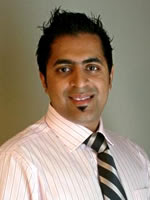 Brushing your teeth is a simple step toward better oral hygiene; but, there are many questions that surround this one little task. To better help decipher the tricky waters of mouth washing, here are some easy to remember quick facts about brushing your teeth!
Brushing your teeth is a simple step toward better oral hygiene; but, there are many questions that surround this one little task. To better help decipher the tricky waters of mouth washing, here are some easy to remember quick facts about brushing your teeth!How much time should it take me to brush my teeth?
You should be brushing for at least 2 minutes. Don’t forget that flossing should also be a part of your brushing regimen; and, it should take at least a minute.
How long should I keep my tooth brush before buying a new one?
Most tooth brush companies use aids (the bristles on the brush change color) to tell you when you need a new toothbrush; however, I generally recommend changing your tooth brush at least once every 3 months. It’s a small investment to maintain a healthy mouth
Do electric toothbrushes work better than regular toothbrushes?
Power toothbrushes are excellent if used correctly. Each brush has a specific way to be used and reading the manufacturer’s directions carefully will enhance your brushing experience. Another benefit is that some brushes have timers, which will help make sure that you brush your teeth for the recommended time.
When I can’t brush, will chewing sugar free gum after a meal really help to prevent cavities?
Sugar-free gum has many benefits, and can help decrease the chance of getting cavities; however, it is not a substitute for a toothbrush and floss. Sugar-free gum increases saliva production and the enzymes in the saliva help to digest the food particles and neutralize plaque acid in your mouth.
 Does mouthwash really help to prevent cavities?
Does mouthwash really help to prevent cavities? Some mouth washes assist in cavity prevention – most notably those that contain Fluoride, however most mouth washes are used to assist in maintaining and improving gum health, and do not count as a substitute for brushing and flossing.
How often should I use mouthwash?
Twice a day, or as directed by your dentist.
Will eating mints hurt my teeth, and cause cavities?
Potentially yes. Chewing hard mints places a tremendous amount of pressure on your teeth and they can cause teeth to fracture and break. Sucking on mints, although tasty, allows for increased sugar in your mouth which is a food source for the bacteria in your mouth. The bacteria, over time will contribute to tooth decay.
Will brushing my teeth after meals help prevent cavities?
Absolutely! Brushing after meals is the best way to maintain good oral hygiene. You will decrease the amount of food remaining in your mouth, and leave little for bacteria to feed on.
What is the best way to keep my gums healthy?
Regular flossing, ideally after every meal, is the best way to maintain healthy gums in between teeth, as well as using a soft toothbrush to massage the gums around your teeth. Mouthwash is a great aid to finalize your home care to leave your mouth feeling fresh and clean.
If you have any other brushing questions please feel free to contact our practice, or visit our web site!





